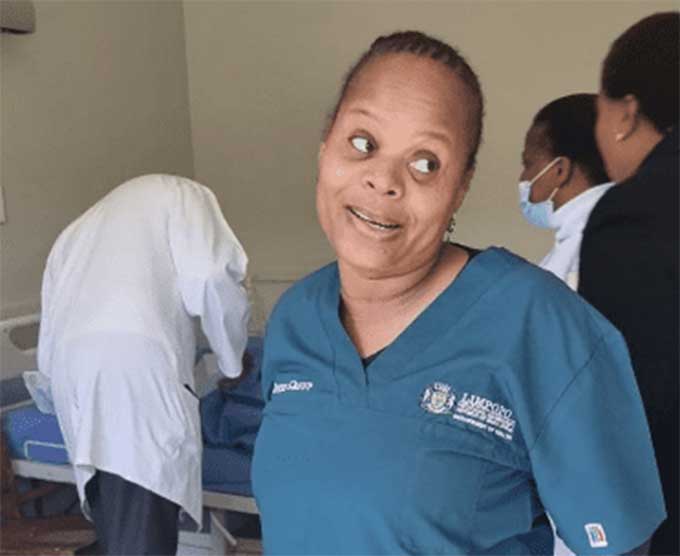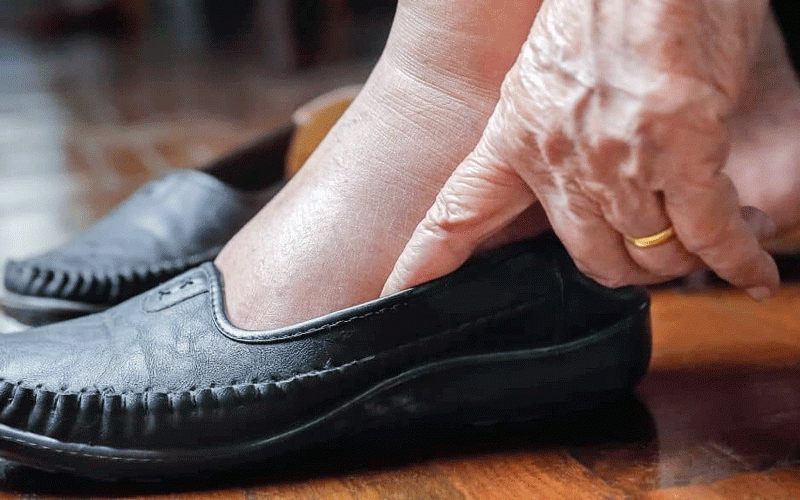
Dr Johannes Marisa Though Zimbabwe government should invest in healthcare workers, South African politician and medical doctor Phophi Ramathuba was conspicuously offside!
Social media was awash last week with news of Dr Ramathuba berating a defenceless Zimbabwean patient admitted at Bela Bela Provincial Hospital in Limpopo.
The doctor had the audacity to defend herself for what she had done. It does not need a rocket scientist to see that Dr Phophi was offside.
There are two different issues involved in the matter, the first one being of patient care while the second one is of governance.
Dr Ramathuba should understand that she should be highly ethical and professional in front of patients irrespective of age, disease or disability, creed, ethnic origin, sex, nationality, political affiliation, race, sexual orientation and social standing.
The Refugees Act, the 2007 Department of Health Circular, the Immigration Act and the Constitution of South Africa all state that all people in South Africa, regardless of status and nationality, have the right to access healthcare services and that no one should be denied emergency services.
MEC Ramathuba should therefore separate governance issues from patient issues and if she has a bone to chew with Zimbabwe political leadership, kindergarten education should nudge her to direct her grievances to the right offices.
Patients should not suffer because they are deemed foreigners by fellow black cadres waging unnecessary wars of attrition.
- Chamisa under fire over US$120K donation
- Mavhunga puts DeMbare into Chibuku quarterfinals
- Pension funds bet on Cabora Bassa oilfields
- Councils defy govt fire tender directive
Keep Reading
One thing is that the affected patient can be subjected to all forms of abuse at the hospital, from simple neglection, physical and mental abuse to gaslighting.
The World Health Organisation met African countries in Togo last week to deliberate on a number of health issues that are affecting the continent especially now when Covid-19 is still a threat to humanity.
If a country is to attain sound health status for its citizens, health systems should be oriented towards primary health care as the chief foundation of universal health coverage.
No country can boast of a robust health delivery service when the health fundamentals are not in situ.
In 2007, the World Health Organisation came up with a framework aimed at promoting a common understanding of
Health and development are symbiotic in nature hence the need for clever consideration of the health sector in our country.
If the country is to outcompete other African countries on health service delivery, a strong primary health care should be established.
The characteristics of a sound primary health care should include meeting people’s health needs throughout their lives, addressing the broader determinants of health through multisectoral policy and action and empowering individuals, families and communities to take charge of their own health.
What should we do as Zimbabwe to remain indisputably strong healthwise? Questions have been asked about why our health delivery system is faltering yet the country has some of the biggest brains in the world.
The country has produced high calibre professors, doctors, nurses, scientists in the medical field and has thus become a training ground for many health professionals.
The unfortunate phenomenon is brain drain and many push factors have been identified which include the so-called political instability, poor quality of life in Zimbabwe, limited access to health care and lack of economic opportunities in the nation.
Many factors have contributed to these ills and among them are a raft of economic sanctions imposed on the country, rampant corruption that is wiping away millions of dollars, inconsistent policies, capital flight to mention just but a few.
The country continues to lose thousands of healthcare workers to greener pastures and the year 2021 alone saw Zimbabwe losing more than 2100 health workers to other nations, 1800 of whom being nurses.
Lately, there has been unprecedented demand of nurse assistants especially in the United Kingdom.
It is a pity that many professionals have jostled to nurse aid training centres in order to start practising as simple carers. 2022 will go down in memory as the year of nurse aids!
The nation should therefore address its ills if we are to attain international health practice status. The symptoms and signs do not need intensive investigations to come up with a substantive diagnosis.
It is not a secret that our health delivery system is lacking two important pillars on the WHO framework, the health workforce and financing.
Because of poor working conditions that persist in the health sector, the probability of having a sound health system remains very low.
Brain drain will remain a major challenge, strikes will remain, job boycotts will dominate as morale is at its bottom low amongst healthcare workers who are finding it hard to commute to work, send their children to schools or even fend for their families.
Proposals have been made about non-monetary benefits for healthcare workers. The strategy was sound but the implementation stage seems to be the biggest bottleneck.
It is prudent that government sets adequate financing on the health sector taking cognisance of the delicate nature of the sector.
Can the nation achieve the expected health deliverables without adequate staff, without experienced and dedicated staff? The answer is a simple NO. It is therefore wise to invest in health workforce if we are to attain universal health coverage.










